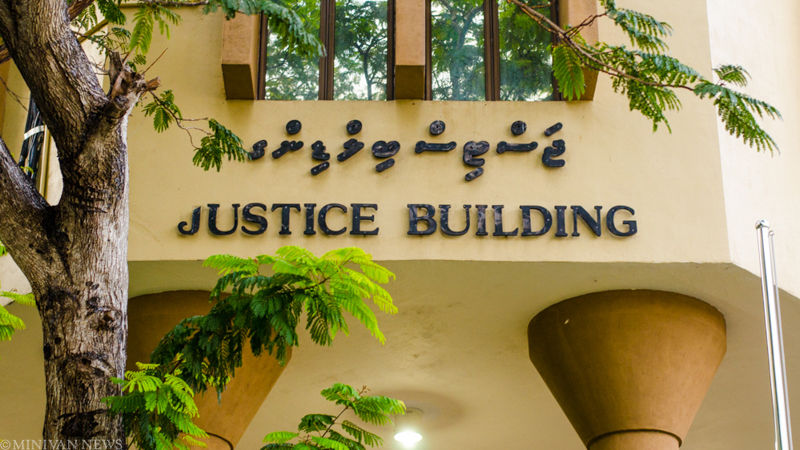CNM journalist barred from Imran’s terrorism trial
Misbah Abbas, senior desk editor at CNM, told The Maldives Independent that he was barred days after he reported Judge Bari threatening journalists over allegedly unfair coverage of the Adhaalath Party leader’s terrorism trial. Despite registering for yesterday’s hearing, Misbah was told that “the judge has decided not to let the CNM journalists inside.”

25 Jan 2016, 09:00
Criminal court Judge Abdul Bari Yousuf has barred CNM senior journalist Misbah Abbas from covering Sheikh Imran Abdulla’s terrorism trial.
Misbah, senior desk editor at the popular online paper, had registered at the criminal court to observe yesterday’s 1:00pm hearing, but was told by a court official that “the judge has decided not to let the CNM journalists inside.”
The move comes days after CNM reported that Judge Bari had threatened journalists inside the courtroom claiming their coverage of the Adhaalath Party leader’s trial was unfair, Misbah said.
“The judge told reporters that we should be fair in reporting on trials and threatened to take action against journalists. We wrote about that, and the next day I wrote a report questioning whether Sheikh Imran would get a fair trial, which I think is why I wasn’t let into the court room yesterday,” he said.
Become a member
Get full access to our archive and personalise your experience.
Already a member?
Discussion
No comments yet. Be the first to share your thoughts!
No comments yet. Be the first to join the conversation!
Join the Conversation
Sign in to share your thoughts under an alias and take part in the discussion. Independent journalism thrives on open, respectful debate — your voice matters.




